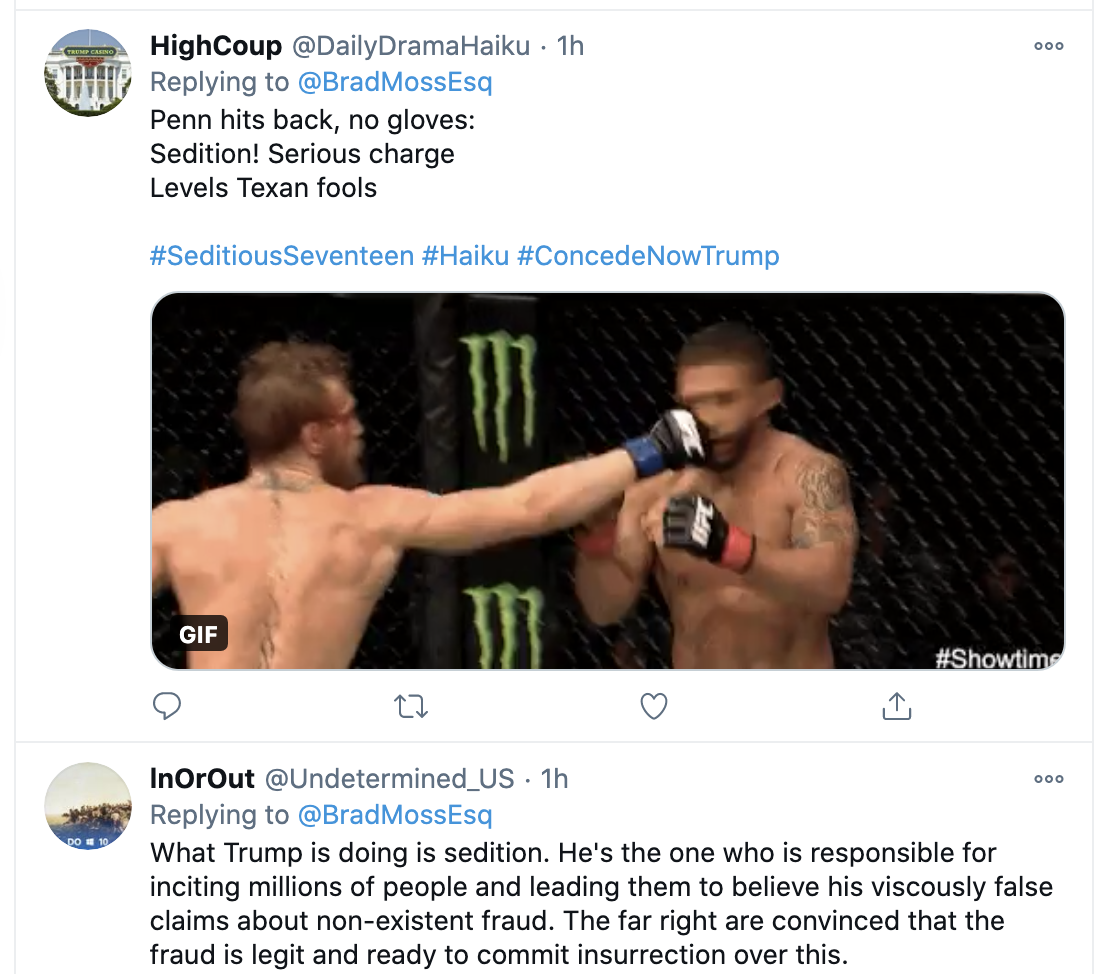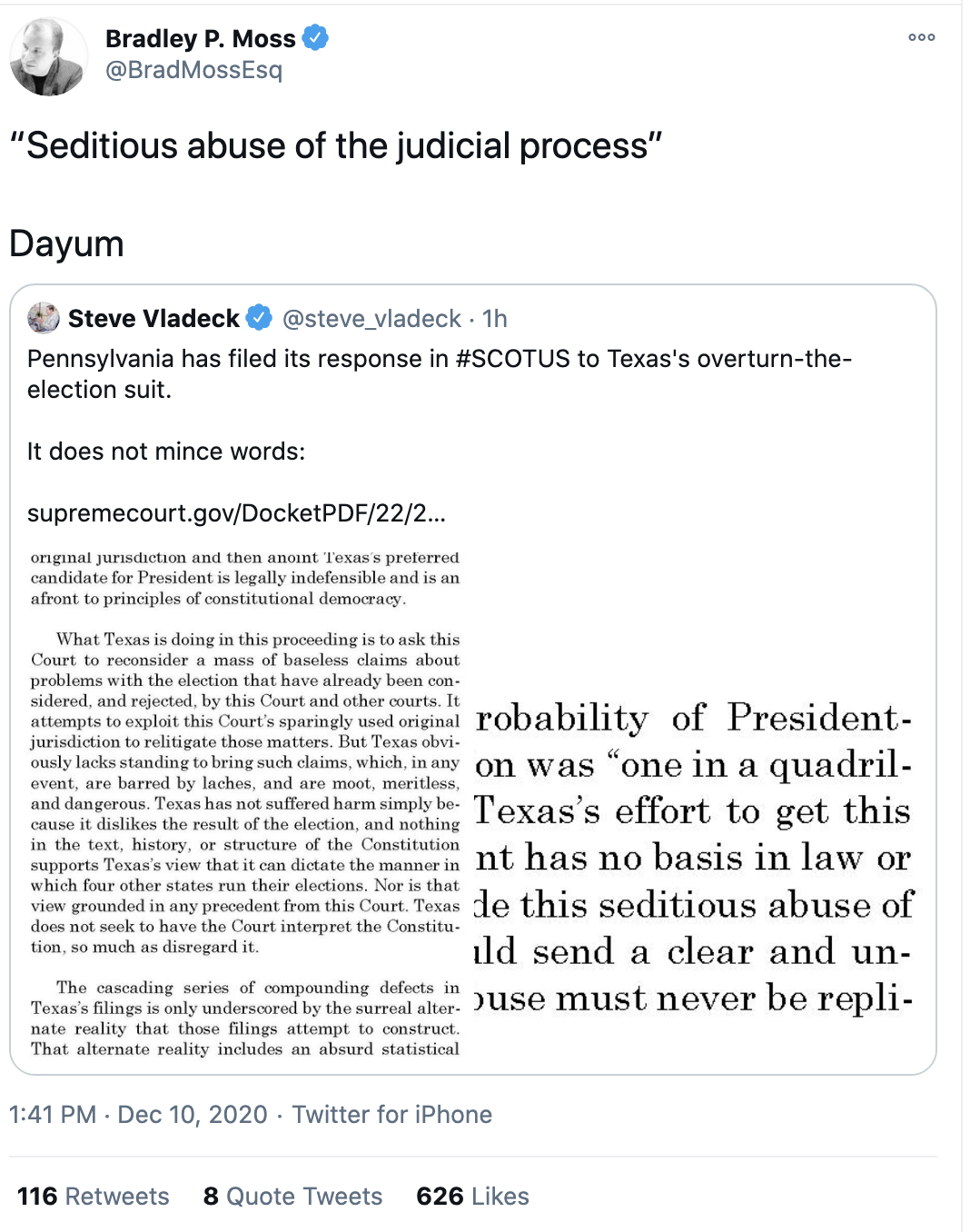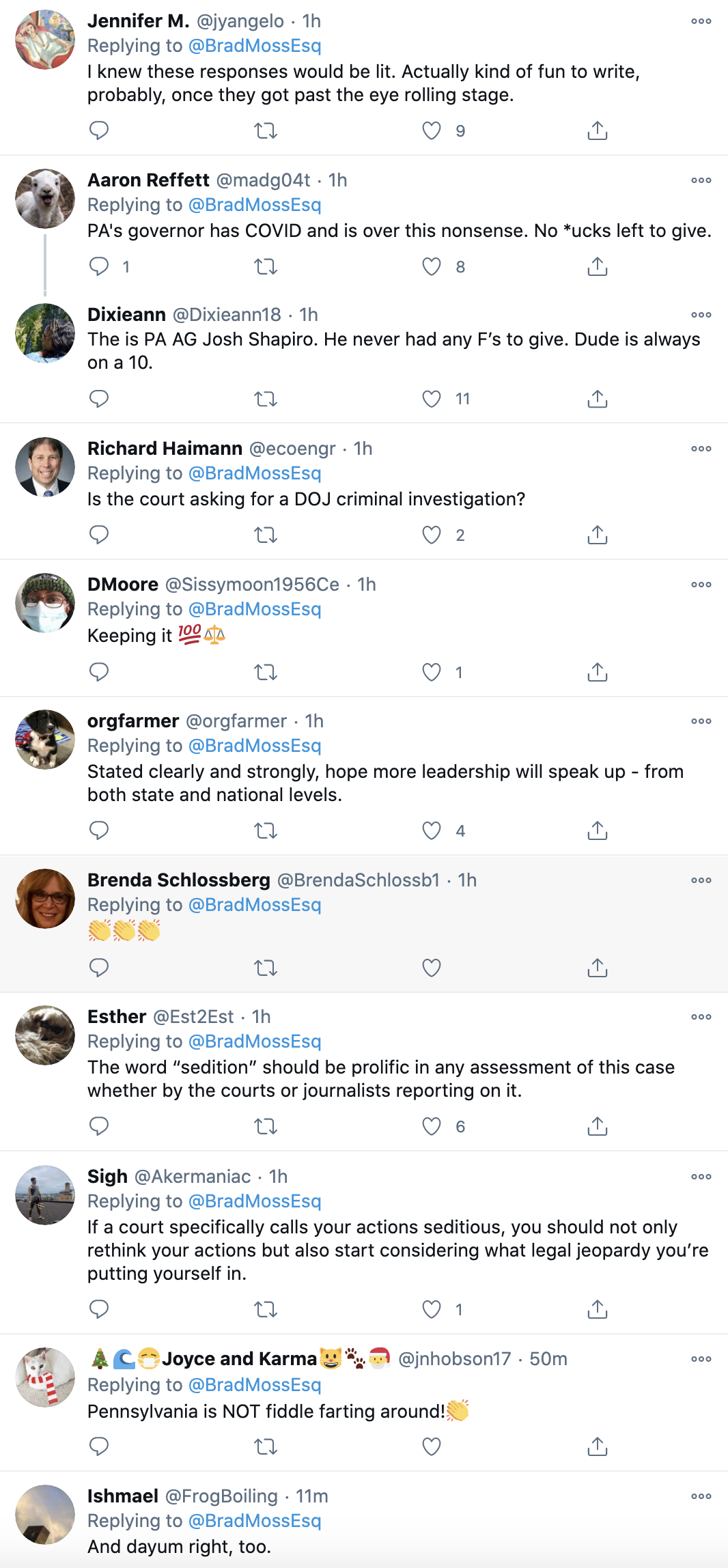The court used the perfect word to describe what Donald Trump has been up to in his 55-plus frivolous lawsuits, “seditious.” It means an overt act of rebellion against the established order. It often has an element of “subversion of a constitution and incitement of discontent toward, or rebellion against, established authority.”
National security attorney Bradley P. Moss, Esq. honed right in on the meat of the Supreme Court response:
‘”Seditious abuse of the judicial process” Dayum’
FindLaw.com gives an excellent example of what sedition means:
‘Suppose that over the course of a few months, a small band of armed militants has coordinated strategies to distribute firearms and take over the nation’s capital by force through a website on the clandestine “deep web.”‘
Moss continued, noting that sedition is related to treason:
‘All indications show that the group is dead serious in its intentions, but they’re thwarted by an FBI investigation that leads to arrests. While sharing information and discussing ideas — even distasteful ones — is generally protected as free speech, the FBI believes this crosses the line. The alleged ringleaders of the plot are charged with “seditious conspiracy” (simply referred to as “sedition“), a federal crime related to treason and other anti-government offenses.’
The court was not messing around when it condemned the president for his actions:
‘It refers to the act of inciting revolt or violence against a lawful authority with the goal of destroying or overthrowing it. The following provides an overview of this particular crime against the government, with historical references.’
The federal sedition law was addressed in Title 18 of the U.S. Code (which includes treason, rebellion, and similar offenses), specifically 18 U.S.C. § 2384. The result is, “It is a crime for two or more people within the jurisdiction of the United States to commit sedition.”
In order to commit sedition there are three activities required:
- ‘To conspire to overthrow or destroy by force the government of the United States or to level war against them;
- ‘To oppose by force the authority of the United States government; to prevent, hinder, or delay by force the execution of any law of the United States; or
- ‘To take, seize, or possess by force any property of the United States contrary to the authority thereof.’
Of course, the government must “prove that the defendant in fact conspired to use force. Simply advocating for the use of force is not the same thing and in most cases is protected as free speech under the First Amendment.”
Okay, this is what sedition is and is not:
‘[T]wo or more people who give public speeches suggesting the need for a total revolution “by any means necessary” have not necessarily conspired to overthrow the government. Rather, they’re just sharing their opinions, however unsavory:
‘But actively planning such an action (distributing guns, working out the logistics of an attack, actively opposing lawful authority, etc.) could be considered a seditious conspiracy.’
So what is the difference between sedition and treason? Sedition is identified in the Constitution (Article III of the U.S. Constitution) in a fundamental way:
‘Sedition goes beyond inciting rebellion against the authority of state. The more serious treason is described as “actively levying war against the United States or giving aid to its enemies. Another way of looking at it is that seditious conspiracy often occurs before an act of treason.”‘
Twitter world went a little nuts when they saw this tweet. Take a look at some of our favorite responses below:
— Adair PardonBarron Arrowsmith (@AdairBlackmore) December 10, 2020


The Mueller Report Adventures: In Bite-Sizes on this Facebook page. These quick, two-minute reads interpret the report in normal English for busy people. Mueller Bite-Sizes uncovers what is essentially a compelling spy mystery. Interestingly enough, Mueller Bite-Sizes can be read in any order.
















